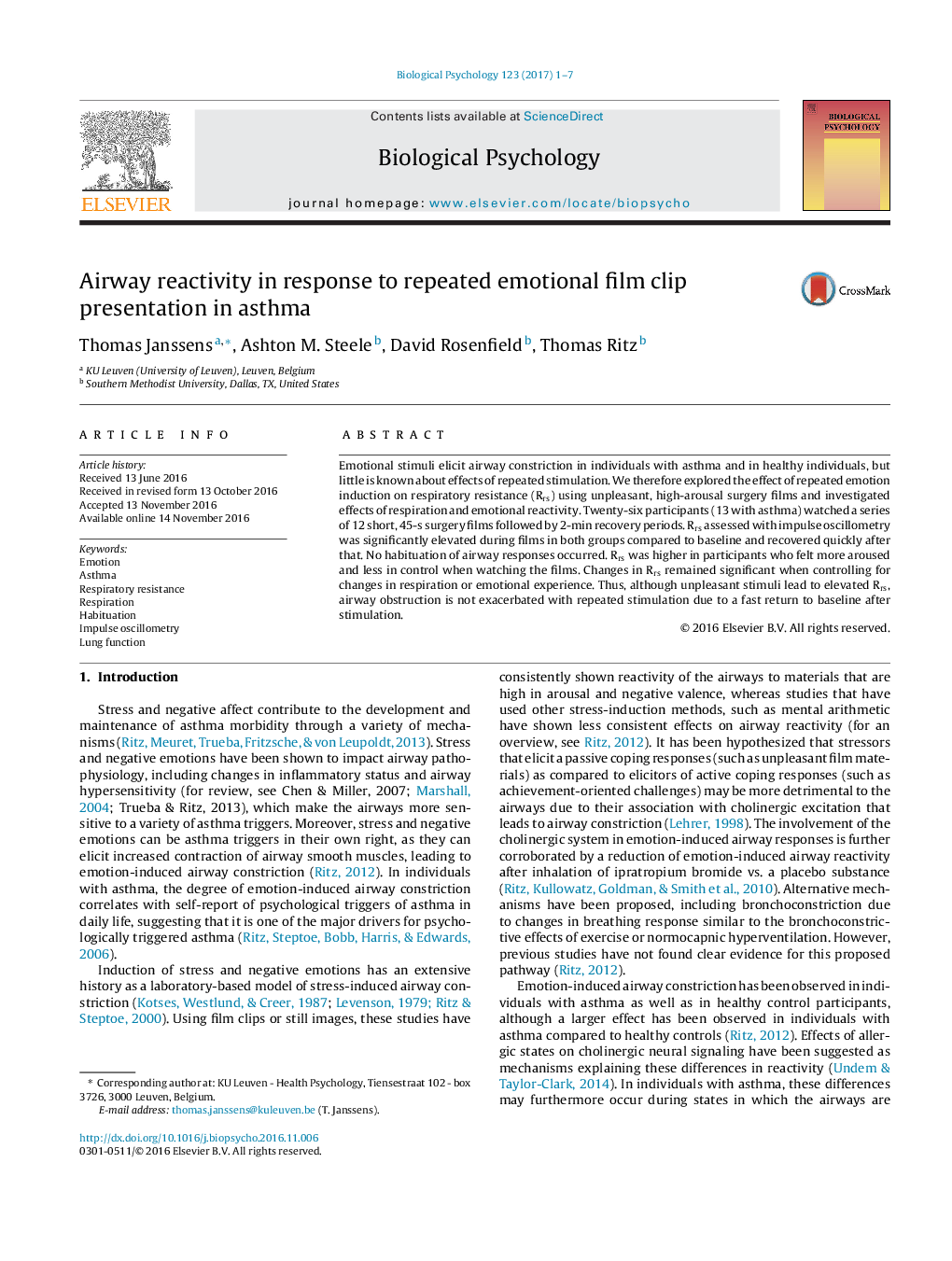| Article ID | Journal | Published Year | Pages | File Type |
|---|---|---|---|---|
| 5040520 | Biological Psychology | 2017 | 7 Pages |
â¢Short unpleasant high arousal film clips increase respiratory resistance.â¢Respiratory resistance increased both in asthma and control participants.â¢Arousal and lack of control correlated with increased respiratory resistance.â¢Respiratory resistance quickly recovered after stimulation.â¢No habituation or sensitization of airway responses was observed.
Emotional stimuli elicit airway constriction in individuals with asthma and in healthy individuals, but little is known about effects of repeated stimulation. We therefore explored the effect of repeated emotion induction on respiratory resistance (Rrs) using unpleasant, high-arousal surgery films and investigated effects of respiration and emotional reactivity. Twenty-six participants (13 with asthma) watched a series of 12 short, 45-s surgery films followed by 2-min recovery periods. Rrs assessed with impulse oscillometry was significantly elevated during films in both groups compared to baseline and recovered quickly after that. No habituation of airway responses occurred. Rrs was higher in participants who felt more aroused and less in control when watching the films. Changes in Rrs remained significant when controlling for changes in respiration or emotional experience. Thus, although unpleasant stimuli lead to elevated Rrs, airway obstruction is not exacerbated with repeated stimulation due to a fast return to baseline after stimulation.
